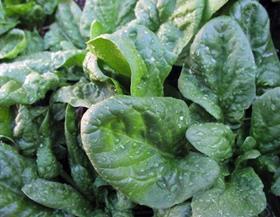
Article updated and modified 21 January 2010
European lettuce producers have voiced concerns over European Union proposals to alter the maximum permitted residue levels for nitrates in lettuce, spinach and rucola (rocket), with some claiming the new levels are “not possible” to achieve year-round.
The proposals, which have already passed one vote in the European Parliament and only need a second one to become law, would see the maximum permitted levels of nitrate in spinach set at 3,500 mg and up to 5,000 mg for lettuce harvested during the winter.
Permitted nitrate levels in ruccola are expected to be established at 5,000 mg for crops harvested between 1 April and 30 September, and at 6,000 mg for 1 October to 31 March.
In a European Food Safety Authority (EFSA) document seen by Fruitnet, the scientific body said that introducing stricter limits would reduce the risk of exposure to nitrate, a naturally occurring compound in leafy vegetables, to some young children.
The EFSA said that nitrate, after reduction to nitrite, had the potential to cause methaemoglobinaemia, a condition that limits the flow of oxygen to the blood.
However, leading fresh produce industry sources told Fruitnet that imposing the new limits would be difficult, if not impossible, to achieve, given the relatively high levels of nitrates that can be found in glasshouse-grown leafy vegetables.
Michael Earley, head of foreign sales at Italian salads group Rago, said he “doubted” whether any growers of spinach or rucola in Spain, Italy or Portugal could meet the proposed levels.
“Nitrates are naturally occurring in rucola and spinach - they are in the water, they are in the soil, and normally we are within the (permitted) range, but not always,” he said.
“The problem is going to be that there’s nothing we can do to change this and we’ve got to hope that each crop is under the limit or we would have to throw it away.”
Des Ferris, managing director of Ireland-based salads provider Nature’s Best, said his company was “very concerned” at the proposal, and claimed the revised limits were “just not possible to achieve”.
Mr Earley added: “The EFSA is ignoring the good health benefits of rucola and spinach and focusing on the bad.”
However, European fresh produce association Freshfel told Fruitnet that levels had been increased to 'settle once and for all' derogations which had to be extended every now and then for a number of northern European countries as a consequence of less daylight compared with southern Europe.
Freshfel's Frederick Rosseneu said the situation had been discussed for a number of years within the industry, adding that the compromise 'seems to be acceptable for all involved'.
But Mr Earley added: 'Most crops normally fall within the proposed levels and they are not impossible to meet in the normal course of growing, but when the weather is too cold, or the sun is blocked for a period of time, or many other factors, the levels will rise above theses levels and a lot of good product will be trashed, and processors will be shorted and fines will be levied by the supermarkets.'
The nitrate legislation is expected to go before the European Parliament for a second round of voting in early March, after which it is expected to be passed into law.



